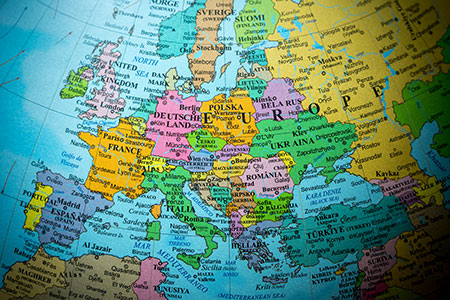Ministers of Energy sign European Wind Charter

The EU’s ambition to advance wind energy took two further steps forward in the margins of a recent Energy Council in Brussels, following up on two of the measures outlined in the recent European Wind Power Action Plan. Firstly, the vast majority of Member States and many leading wind industry representatives have signed up to a European Wind Charter, with more expected to follow. Secondly, latest figures show that 21 Member States have now submitted pledges on wind deployment in the next three years.
In the presence of Commissioner for Energy, Kadri Simson, a signature ceremony saw 26 national Ministers of Energy and high-level representatives of the wind sector commit to a European Wind Charter, which covers a number of voluntary commitments aimed at supporting the development of the EU wind sector. In fact, more than 300 companies from the wind sector have now expressed their support for the charter. One of the 15 actions identified in October’s European Wind Power Action Plan (part of the European Wind Power Package), the purpose of the charter is to align and swiftly implement the actions of the Commission and the signatories (both Member States and stakeholders), while demonstrating a common and coordinated effort to improve the enabling conditions for the European wind industry.
Simson said: “So many Member States and CEOs of the wind energy sector signing up to the Energy Charter confirms the EU’s collective determination to have a strong and robust European wind industry. The Charter is the first deliverable of the European Wind Power Action Plan, published less than two months ago to boost the global competitiveness of the EU’s clean tech industry.”
21 Member States have already responded to the request in the European Wind Power Action Plan to commit to specific, concrete pledges on wind energy deployment volumes for at least the period 2024 – 2026, the Commission has confirmed in a summary of the confirmed wind deployment pledges. The pledges show the commitment of Member States to accelerate and ramp-up the deployment of wind in the EU, both onshore and offshore. They show that there is a solid business case and a positive outlook for the wind sector in the EU in the short, medium, and long-term, under the positive effect of recent EU and Member States’ policies.
While these pledges remain voluntary and have no legal status, they are aimed at providing a clear and credible overview of wind energy deployment in the next years. They cover all wind capacities (onshore and offshore, publicly supported and non-supported) that Member States plan to install in the period 2024 – 2026.
For more news and technical articles from the global renewable industry, read the latest issue of Energy Global magazine.
Energy Global’s Winter 2023 issue
The Winter 2023 issue of Energy Global hosts an array of technical articles weather analysis, geothermal solutions, energy storage technology, and more. This issue also features a regional report looking at the future of renewables in North America, and a report from Théodore Reed-Martin, Editorial Assistant, Energy Global, on how Iceland utilises its unique geology for renewable energy.
Read the article online at: https://www.energyglobal.com/wind/20122023/ministers-of-energy-sign-european-wind-charter/




